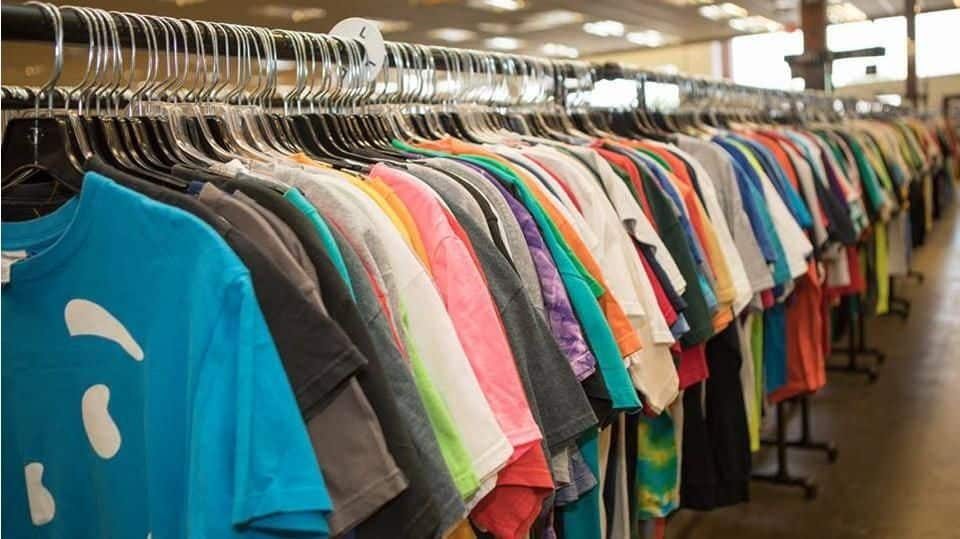
Soon, India to have its own size-chart for readymade clothes
What's the story
Seeking to come up with a standardized "India size chart" for readymade garments, the National Institute of Fashion Technology (NIFT) will soon start a national sizing survey that will sample 25,000 people using high-tech whole-body scanners.
NIFT Director General Sarada Muraleedharan said the survey would cost nearly Rs. 30cr and the project would be conducted over a period of 2-3 years.
Here's more.
Information
Project has been approved by the Centre
The "India size chart" project will entail measuring of 25,000 male and female Indians in six cities in six regions of the country: Kolkata (East), Mumbai (West), New Delhi (North), Hyderabad (Central India), Bengaluru (South), and Shillong (North-East), according to the Textiles Ministry.
Details
Foreign brands in India to use the size-chart, too
Once a uniform India size is arrived at, "even foreign brands in India would also carry it," said Rajesh Shah, the Chairman of the Board of Governors of the NIFT.
"Besides, our diaspora can then also order any wear based on that standard size," Rajesh Shah added.
The NIFT is under administrative control of the Union Textiles Ministry.
Quote
What does the Textiles Ministry say?
"Indian apparel industry uses size-charts which are tweaked versions of size-charts of other countries so, returns of the garments are in the range of 20-40%, and is increasing with the growth of e-commerce...the main reason for returns are poor garment fit," the Ministry said.
Data Collection
Project involves measuring people aged between 16 and 65 years
Using 3D whole-body scanners, computers will extract hundreds of measurements from a scan, according to the Ministry
The anthropometric data collected from the sample population in the age group 15-65 years to create a database will result in a standardized size chart.
Such a size chart, which is representative of the Indian population, can be adopted by the apparel industry, it added.
Information
NIFT to use non-contact method of measuring
NIFT's survey entails measuring statistically relevant sample size pan country using the human-safe technology of 3D whole-body scanner, a non-contact method of taking body measurements and analyzing the collected data to create size-charts. The data generated will be confidential and secure, an official statement highlighted.
The need
Why does India need such a survey?
The Ministry said a large percentage of shoppers face difficulty in finding clothes that fit perfectly according to their body measurements. The reason is differences in anthropometric built of people in different geographical regions across the country.
In India, either the US or the UK system of "Small, Medium, Large, Extra Large" has been used, and people then go for fitting accordingly, Muraleedharan said.
Uniform size chart
All Indian brands will have same size: Muraleedharan
After the uniform size chart is available, the whole country will have a "standard reference point" for the ready-to-wear industry, Muraleedharan said. "That means, all India brands will have the same size for a person," she added.
Till date, 14 countries have successfully completed national sizing surveys: the US, Canada, Mexico, the UK, France, Spain, Germany, Korea, China, and Australia.
Industry
India's textile and apparel industry to hit $123bn by 2021
The findings of the study will impact various other sectors like automotive, aerospace, fitness and sport, art, and computer gaming where insights from this data can produce ergonomically designed products which are suited for the Indian population.
Providing well fitting garments in the absence of standardized size chart is proving to be a big challenge for the domestic textile and apparel industry, Ministry said.
The Idea
The stars have finally aligned: NIFT's Muraleedharan
"The NIFT had been toying with this idea since 2006. But you can say the stars finally aligned, and with the support of the Ministry of Textiles, we are ready for this exercise." Sarada Muraleedharan said.
"Of the Rs. 30cr, the Ministry will give Rs. 21cr and the NIFT will pitch in with about Rs. 9cr," the NIFT Director General added.